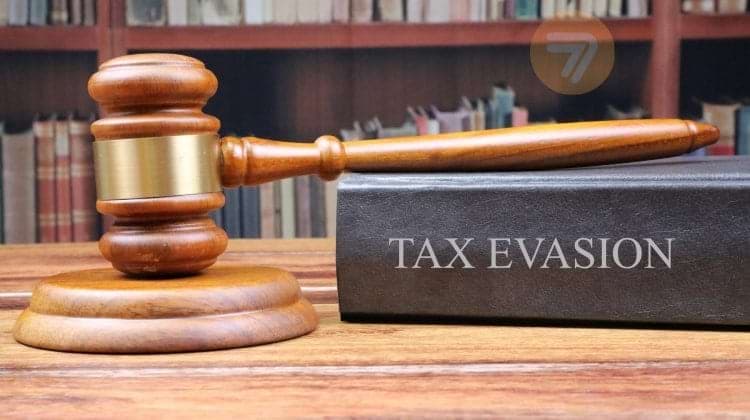AIGF and EGF/FIFS have Proposed Online Gaming SROs
12 Jun 2023
MeitY Ready to Intervene in Gaming Industry Self-Regulation
The Union Minister of State for Electronics & IT, Rajeev Chandrasekhar, has stressed that the Ministry (MeitY) is ready to intervene in the self-regulatory process of online gaming in the country, prescribed by the latest amendments to the IT Rules.
“Online gaming, like many parts of the digital economy, is driven by innovation by the young, and we don’t want the government to regulate what young Indians do,” MoS Chandrasekhar said earlier and explained that the amendments intended to have the Indian gaming industry work with other relevant stakeholders to “create a credible institution that will then regulate that space.”
Nevertheless, if the industry doesn’t propose self-regulatory organizations (SROs) within the prescribed three months after the IT Rules were notified on April 6, MeitY will be forced to undertake the task of forming the regulatory bodies and certifying permissible online real money games.
Quicker reactions from the IT Ministry were prompted by recent media reports that certain Big Tech companies are having difficulties deciding which particular apps to remove from their stores after MeitY issued blocking orders for 138 betting and 94 loan lending apps in February.
“What the article has alerted us to is that we can’t keep things hanging, waiting for an SRO,” Chandrasekhar said. “In the interim, the government can certify what is a permissible game, what is wagering, what is not wagering.”
Homegrown Industry Hurries to Make Gov’t Intervention Unnecessary
In the end, however, the self-regulation process over online gaming in India might function as intended without needing further intervention by the Central Government, as the homegrown industry has been busy preparing the proposals for at least two SROs.
The first proposal is under the flag of the All India Gaming Federation (AIGF). And the second one is a cooperation between members of the E-Gaming Federation (EGF) and the Federation of Indian Fantasy Sports (FIFS)
AIGF’s Model Charter: International Best Practices and Responsible Gaming
In the last days of May, the AIGF circulated a draft model charter for online gaming Self-Regulatory Bodies (SRBs). The charter is modeled on international best practices. It is focused on responsible gaming and user protection from various harms. Including the protection of minors.
The draft charter was sent to stakeholders for comments and feedback. These stakeholders include “civil society, lawyers, mental health experts, player welfare representatives, and the gaming industry”. The model charter is to function as a “broad principled document” used by all online gaming industry SRBs. This, according to AIGF’s declared intent.
“The key idea is that any charter for all SRBs should, firstly, cover all the obligations in the IT Rules [through which the gaming rules have been brought], secondly, it should also go a step ahead and reflect broad international best practices and finally, should keep user protection as the main focus,” the AIGF communication to stakeholders said.
The proposed charter covers fair play and responsible gaming policies. Including measures such as time and money spending limits. As well as parental control and age-rating mechanisms. It covers several regulatory aspects besides these. Like the functioning of the SRBs, scope and time limit of member and game verification. As well as advertising restrictions, grievance redressals, appeals and more.
The EGF-FIFS Proposal: 7 Tests to Certify Skill from Chance Games
According to reports, the other SRO proposal is a joint effort. An effort by members of the two other major gaming industry bodies in India: EGF and FIFS.
This proposal focused on devising a robust mechanism to test and differentiate individual games along the skill vs. chance axis. An issue that has been a source of debate and judicial dispute for decades.
“There will be seven tests based on which games which apply for certification with us will be adjudged if they are a game of skill or chance. All games which apply for certification will have to pass six of these to get a provisional certification to operate in India,” a knowledgeable but anonymous source explained.
“The games will then get up to 3 more months to get the seventh certification, following which they can apply for the final certificate,” the source added.
A SRO by IAMAI Seems Ruled Out for the Moment
In the last few months, members of India’s online gaming industry had to fight off ambitions by the Internet and Mobile Association of India (IAMAI) to form an SRO, as gaming companies saw the proposal as an attempt by Big Tech to gain a certain degree of control over Indian online gaming regulation.
“We are going by the principle of accountability and transparency. The government will certainly not allow the industry to hijack the self-regulatory organization,” MoS Chandrasekhar had clarified earlier.
Update: Third Player Joins with an SRO Proposal in the Last Minute
The Esports Players Welfare Association (EPWA) is a non-profit organization. It aims to safeguard the interests of all e-gamers through research and representation. EPWA has joined the initiative to form SROs for the online gaming sector. They submitted an application at the last minute before the deadline expired on July 6.
The AIGF and EGF/FIFS proposals have also been filed on time.
The whole process of preparing the SRO proposals has been facilitated via unofficial talks with the IT Ministry. This, according to a source at a senior executive position in an online gaming company.
“The industry has been engaging with MeitY informally to determine the SROs’ structure, enabling the notification process to proceed swiftly,” the source explained.



